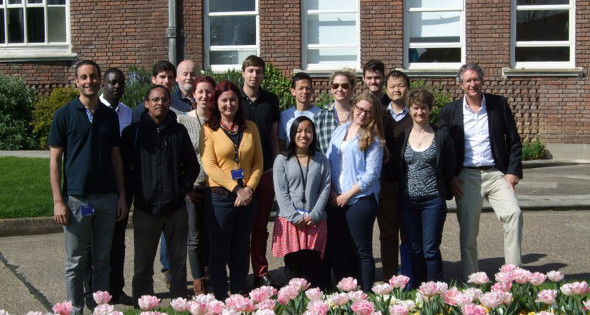Viral Zoonotics
The Laboratory of Viral Zoonotics (LVZ) focuses on cross species transmission of viruses, and the co-evolution of viruses and their hosts including the evolution of immune mechanisms of disease, disease resistance and prevention. Not only has this interest led to the discovery of a number of new viruses, the genetic comparison of host and viral sequences from the same individual and sample have provided powerful genetic tools to solve some of nature's intriguing mysteries. Currently this laboratory applies molecular technologies to address important questions concerning zoonotic infections of importance to both veterinary and human health. We designed and run the newest, state of the art Biocontainment laboratory (BSL3) at the University and operate a new multiparamenter Flow sorting facility for single cell sorting of infectious samples under BSL3 conditions. This new facility enables the isolation and direct sequencing of single cells of different types infected with a variety of different viral agents or transforming plasmids. There is full spectrum of Viral-Immunopathology projects, ranging from the evolution of Zoonotic pathogens, characterisation of the Virome in "One Health and Disease" and impact of viral infections in primary immunodeficiencies. Research in the LVZ is divided into 3 broad areas; genomics, viromics and immunity.
Studies also focus on understanding successful host immune responses to RNA viruses. Translationally this information is utilized for the rational design of novel vaccines for the prevention of diseases caused by notoriously variable viral pathogens. Within the "immunity" programme, the lab continues to address the complex issues of immune correlates and to develop strategies to systematically dissect vaccine-induced immune responses that facilitate vaccine efficacy. Current vaccine programmes include structure based vaccine development for HIV and hepatitis C, and rational vaccine design by escape analysis.
Facilities
We designed and run the newest, state of the art biological Containment Level 3 (CL3) laboratory at the University as well as operate a new multiparamenter Flow sorting facility for single cell sorting of infectious samples under CL3 conditions. This new facility enables the isolation and direct sequencing of single cells of different types infected with a variety of different viral agents or transforming plasmids. We have made both our CL3 facilities and FACS CL3 Suite available for use by members of the University.




